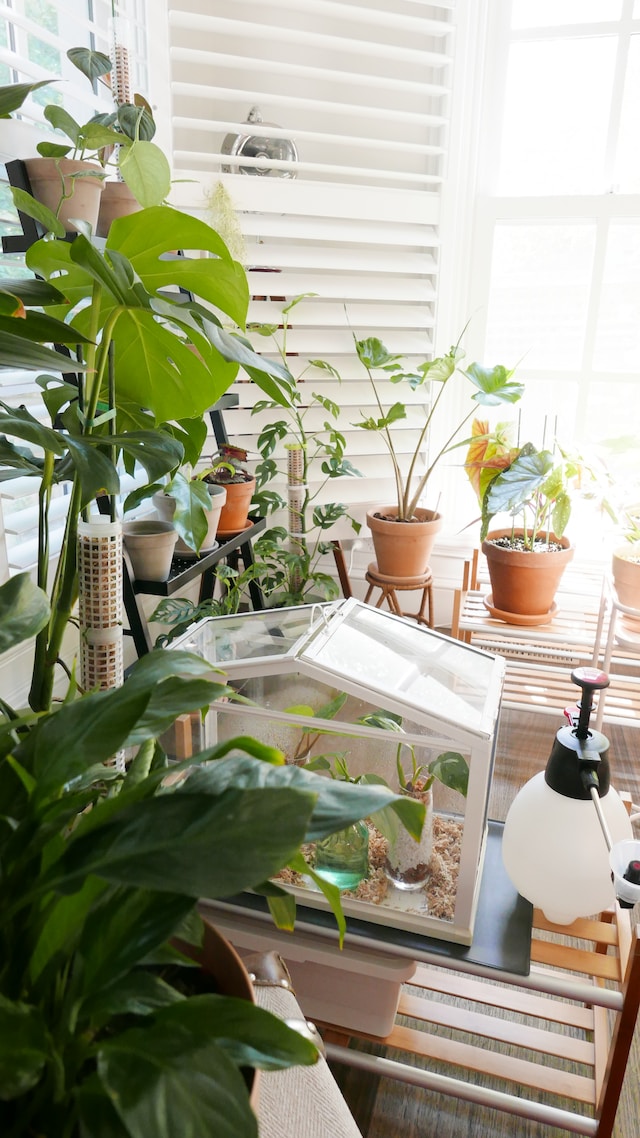If youre a nature lover, there’s nothing more satisfying than growing your own edible plants, even when you’re restricted to a small garden or balcony. By dividing what you grow into three categories, you can make the most of your limited space and ensure a continuous supply of fresh produce. Let’s look into this a bit more, shall we?
Fast-Rotating Crops: Your Quick Harvests within 1-4 weeks
These crops, which you plant and harvest within a few weeks, are fantastic for providing a constant flow of fresh food. They prove that you dont need ample space or months of waiting to grow and enjoy your own produce.
Microgreens: Fast-growing superfood
Microgreens, the immature versions of plants like kale, beet, or radish, are nutritional powerhouses and grow rapidly. Sprinkle good quality compost with your seeds, cover with a thin layer of soil, and you can expect to be harvesting within 1-2 weeks.
Baby lettuce: The versatile greens for your salads and sandwiches
A few pots of baby lettuce can provide fresh greens for weekly salads or sandwich fillers. They germinate quickly and can be harvested within around 4 weeks of sowing.
Baby spinach: A nutrient-packed green
Baby spinach leaves are remarkable for their nutritional value and they grow quickly. Plant seeds in rich, moist soil and youll be picking leaves within 3-4 weeks.
Radishes: Crunchy and peppery snack
Radishes add a wonderful crunch and peppery taste to salads and stir-fries. Moreover, theyre one of the quickest growing vegetables you can plant, with some varieties ready to eat just 3 weeks after sowing.
Slower Crops: Intermediate Harvests for the Season
These crops require a bit more patience than the quick-growers, but your patience will be rewarded with seasonal delights that you’ve grown yourself.
Tomatoes: Delicious fruits from your container garden
Cherry tomatoes are perfect for pots or small raised beds. Plant seedlings in spring, provide them with plenty of sun and regular watering, and you’ll have delicious tomatoes by mid-summer.
Cucumbers: The refreshing gourd in your salads
Cucumbers do well in containers, especially if you choose a bush variety rather than a vining one. They need a long, warm growing season, but once set up, you’ll have a refreshing crop for your summer salads.
Peppers: Spice things up with your small garden harvest
Sweet or hot, peppers are perfect for container growth. They need warm, sunny conditions and should be started indoors from seed before the last frost. By the end of summer, youll be adding home-grown spice to your meals.
Perennial Herbs: Permanent Garden and Food Features
Perennial herbs are perfect as they require little space and contribute greatly to your cooking. Once established, theyll provide a permanent feature for your garden and a constant supply of fresh flavors for your dishes.
Mint: A refreshing culinary companion
Mint grows well in pots, making it an ideal choice for your balcony garden. Its great for adding a fresh note to both sweet and savory dishes, not to mention its starring role in mojitos!
Chives: The savory herb from your balcony
Chives are hardy perennials that appreciate a sunny site. Their mild, onion-like flavor makes a great addition to salads, soups, and main dishes.
Thyme: An aromatic component to your dishes
With its subtle lemony flavor and aromatic leaves, thyme is a wonderful addition to your herb collection. Once established, it requires little water, making it an ideal plant for a small, easy-care garden.
Sage: An herbal remedy at your reach
Sage is a robust and versatile herb that loves sunny, well-drained conditions. It has many culinary uses and is believed to have multiple health benefits.
Getting Your Small Garden Started
A small garden or balcony doesn’t mean you can’t grow a bumper crop of tasty and nutritious fruits, vegetables and herbs. With careful planning, you can enjoy a variety of fresh produces right at home. Here are some tips:
- Start small. It’s better to get a few pots or containers and concentrate on a selection of your favorites than to try and grow a huge range of crops in your first year.
- Good soil is everything. Invest in high-quality potting mix, ensure good drainage, and feed your plants regularly with organic compost or a slow-release granular fertilizer.
- Water is crucial, but dont overdo it. Overwatering is a common mistake in container gardening, which can lead to root rot and fungal diseases.
- Sunshine. Most edible plants need at least 6 hours of direct sunlight per day. Place your pots or raised beds in the sunniest parts of your balcony or yard.
- Regularly check your plants for pests and diseases. Early detection often makes it easier to deal with the issue.
Conclusion
And there you go, starting a small-scale edible garden is not as tricky as you may think. By categorizing your crops into quick growers, slow growers and perennials, you can optimize your small space and enjoy fresh, homegrown food throughout the year. Remember, gardening is a learning process, so dont be afraid to make mistakes, experiment with different plants, and have fun along the journey. Good luck, and happy gardening!

